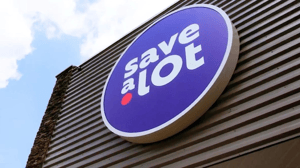Here's What Happens to Grocery Sales During a Deep FreezeHere's What Happens to Grocery Sales During a Deep Freeze
Retailers must strategically plan inventory ahead of winter weather events. Retailers must strategically plan inventory ahead of winter weather events.

When frigid temperatures roll in, as they did this week with record-breaking cold across vast areas of the Midwest, businesses such as restaurants and clothing retailers can expect a steep decline in sales—but grocers are among the lucky few that may actually see a slight lift.
Evan Gold, EVP of Planlytics, a data firm that helps businesses asses weather impacts, told WGB that shoppers often rush to the store to purchase need-based items before a forecasted weather event and, conversely, return to replenish the items they went through once the weather calms down.
This, said Gold, usually makes up for any sales lost during the coldest days. Overall grocery sales, he said, were up by half a percent nationally during this week's polar vortex.
"When you think about the grocery sector, you see a pre-storm bump and a post-storm bump, as opposed to a coffee shop where people aren't buying five cups of coffee at once [before or after a storm]," he said.
Need-based and warming categories do especially well during cold fronts, Gold said. Categories that saw a lift nationally during this week's weather event include: hot cocoa, up 7%; hot cereal, up 4%; chili, up 3%; tortilla chips, up 3%; hot tea and coffee, up 2%; dried pasta, up 2%; dog food, up 2%; milk, up 1%; and crackers, up 1%.
In the Great Lakes region, where the freezing temperatures hit the hardest: Hot cocoa was up 8%, hot cereal and chili were up 3%, eggs were up 2% and dairy was up 1%. Additionally, melting salts were up a whopping 27% while, predictably, charcoal was down 8%.
However, some categories do suffer during winter events, including ice cream, which was down 8%-9% nationally; soft drinks, down 5%; bottled water, down 3%; and beer, down 2%.
"What happens is that people move from discretionary purposes to need-based purposed during this time," Gold said. "It becomes a net positive for grocers overall."
As such, Gold warned that retailers must diligently plan their stock when a weather event is predicted because if they run out of the need-based items that shoppers are looking for, they will "lose that business, and it won't come back."
"If you don't have the inventory, one of two things happen," Gold said. " The shopper will choose a substitute or different brand, or they will find a different retailer."
On the other hand, Gold advised that weather events can actually be an opportunity for retailers to build loyalty by keeping the items they know their customers will need fully stocked. They can also push items that they know will do well, including items such as car batteries and windshield scrapers.
"Shoppers come in for need-based items," Gold said. "But if they see something that they might need such as fire logs or antifreeze, they will pick them up."
About the Author
You May Also Like






